Climate Resilience for Migratory Birds and People along the East Atlantic Flyway
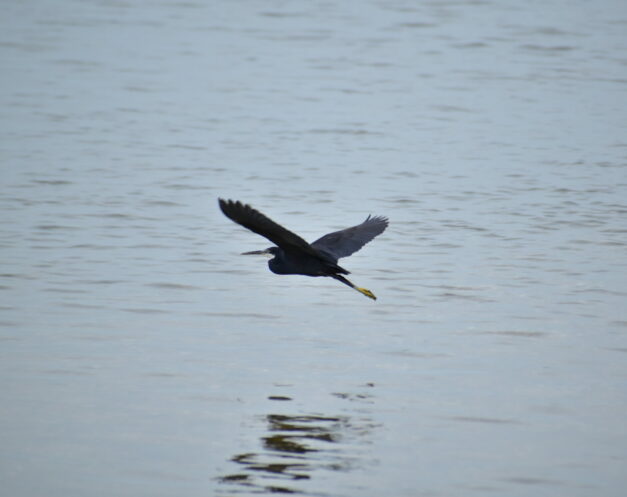
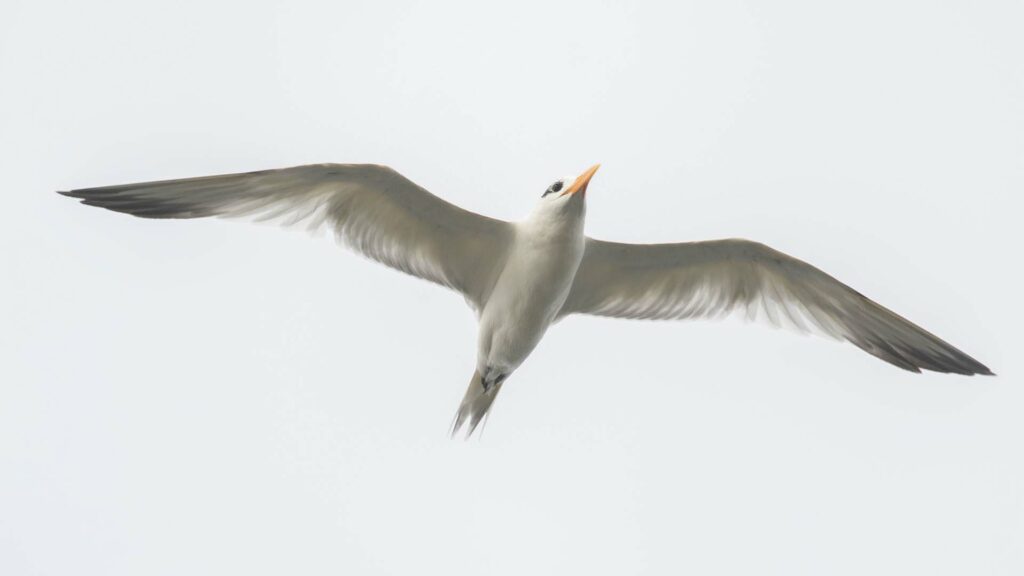
Climate Resilience for Migratory Birds and Populations Along the East Atlantic Flyway
Wetlands International, the Joint Wadden Sea Secretariat (CWSS), BirdLife International, BirdEyes, and PRCM, among other partners, have launched a new initiative to protect ecosystems and communities in 11 countries along the East Atlantic Flyway, one of the world’s most important migratory routes for waterbirds.
Wetlands: Essential lifelines for millions of waterbirds
Spanning more than 33 countries, the East Atlantic Flyway connects vital wetlands from the Arctic Circle to the southern tip of Africa. Every year, millions of migratory birds use this flyway to rest, feed, and breed in vital wetlands. These ecosystems also contribute to the well-being and resilience of the people who live nearby.
But these wetlands are under threat. Climate change is exacerbating droughts, floods, sea-level rise, and erosion, disrupting the delicate balance of nature and disrupting the lives of communities who depend on these ecosystems for food, livelihoods, and protection.
In response, Wetlands International and its partners have launched a new program called the Climate-Resilient East Atlantic Flyway (CREAF) to protect these wetlands, which are vital for birds and people in Africa and Europe. We will improve monitoring and management, implement nature-based solutions, encourage policy reform and empower local communities, especially women and youth.
Project actions
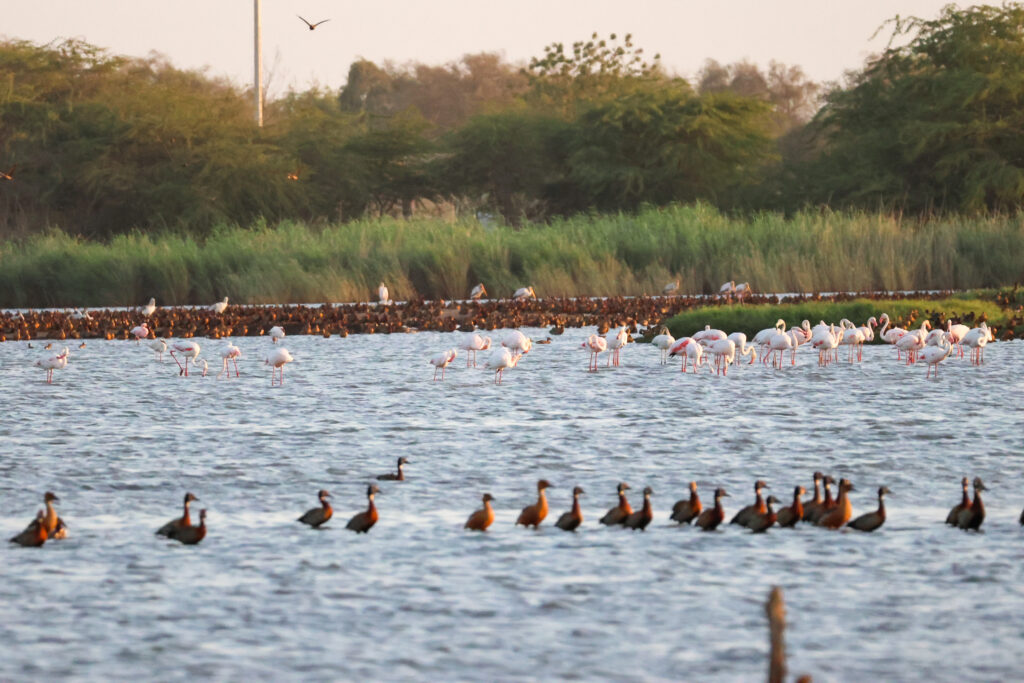
Wetland Management: Restoring and protecting wetlands along the East Atlantic Flyway to protect migratory birds, enhance biodiversity, and strengthen the climate resilience of communities that depend on these vital ecosystems.
Monitoring and Research: Building local capacity to monitor bird populations, wetland health, and the effects of climate change, and generating the data and information needed to effectively guide conservation, policy, and planning.
Policy and Governance: Integrating wetland and flyway conservation into national policies and regional frameworks to ensure coordinated, science-based action to protect critical habitats in 11 countries.
Community Empowerment: Providing women, youth, and local observers with the tools, knowledge, and opportunities to play a leading role in conservation. CREAF supports nature-based solutions that are not only sustainable but also focused on livelihoods.
The program will be implemented in nine critical wetland sites across seven West African countries that are not only biodiversity hotspots but also buffer zones against climate risks such as coastal erosion, flooding, and drought: Banc d’Arguin National Park (Mauritania), Bijagós Archipelago (Guinea-Bissau), Saloum Delta (Senegal), Diawling National Park (Mauritania), Inland Niger Delta (Mali), Lower Mono Delta (Togo and Benin), and other important migratory sites along the West African coast.
At the heart of the program are the people who protect wetlands and monitor migratory birds, such as community leaders, youth, and researchers.
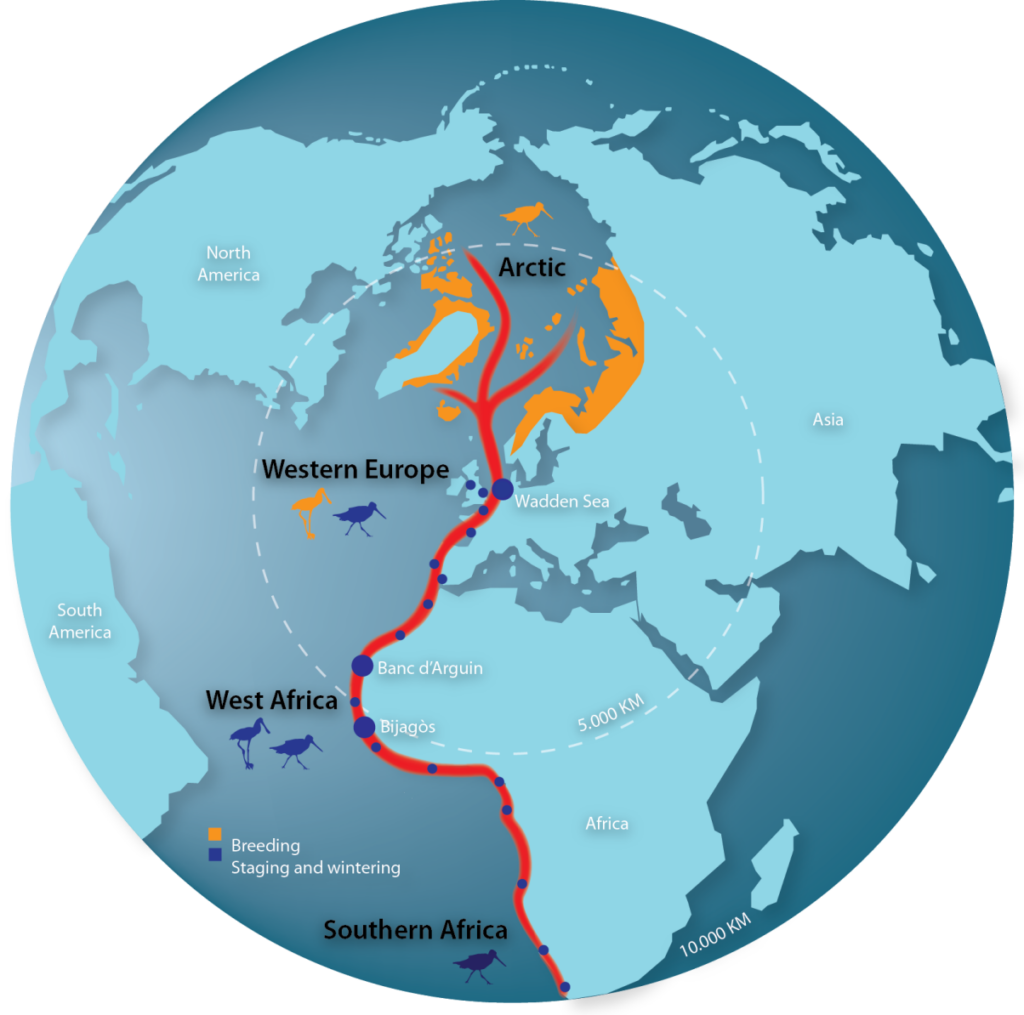
The program combines science, community knowledge and policy dialogue to:
- Conduct climate risk and vulnerability assessments at each site.
- Implement restoration and adaptation measures tailored to local needs.
- Strengthen the role of site managers, government officials, and private companies in effective site management through capacity-building and awareness-raising campaigns.
- Integrate local communities, particularly women, into coastal site management to promote sustainable use of natural resources and the development of biodiversity-friendly livelihoods.
- Build the capacity of academic institutions in wetland ecology and ornithology.
- Integrate long-term commitments to wetland and migratory bird conservation into policies and legislation related to biodiversity and climate change adaptation.
- Integrate early warning and climate forecasting systems into wetland management.
- Promote South-South cooperation and flyway governance, as well as the integration of the flyway approach into biodiversity and climate change policies.
Wetlands International leads the implementation of several key program elements, focusing on ecosystem restoration, building local management capacity, and promoting nature-based solutions. We support our partners along the flyway by providing technical expertise, capacity building, and coordination to ensure that climate resilience efforts are based on scientific data, inclusive governance, and strong local ownership. We are also the implementing partner in the Saloum Delta, Senegal.
CREAF contributes to the Global Biodiversity Framework, the Paris Agreement on Climate Change, and the United Nations Sustainable Development Goals (SDGs).
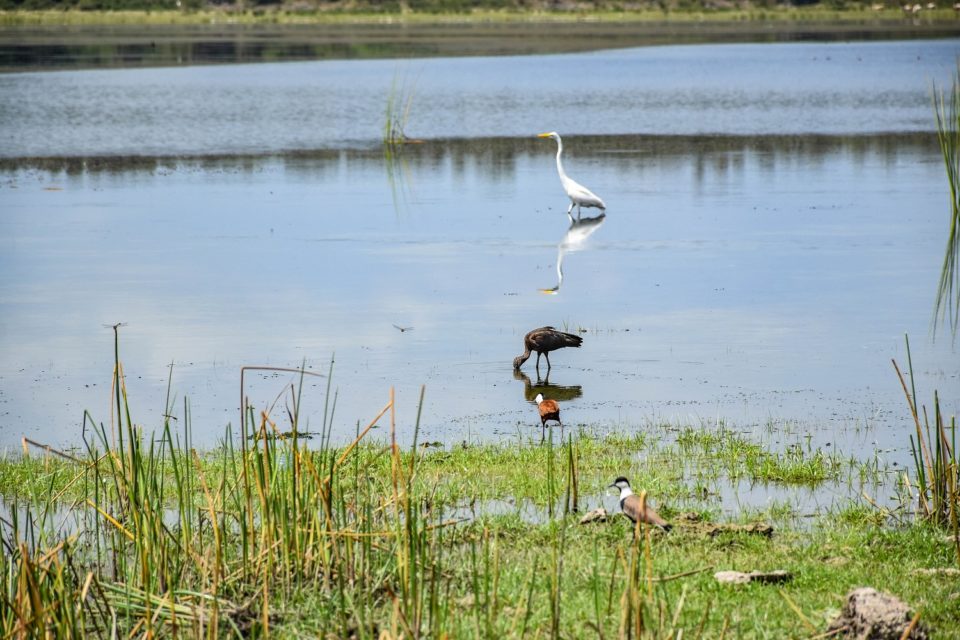
15 partenairs :
- Joint Wadden Sea Secretariat (CWSS) – Lead Partner
- BirdLife International
- BirdEyes, University of Groningen, Centre of Excellence for Global Ecological Change
- Angola: Omulamba Biota Conservation
- Guinea-Bissau: Institute of Biodiversity and Protected Areas (IBAP)
- Guinea-Bissau, Mauritania, and Senegal: Regional Partnership for Marine and Coastal Conservation in West Africa (PRCM)
- Ghana: Research Center for Biodiversity Conservation
- Guinea: Guinea Ecology
- Mauritania: Banc d’Arguin National Park (PNBA)
- Morocco: GREPOM
- Namibia: Namibia Nature Foundation (NNF)
- Nigeria: Nigeria Conservation Foundation (NCF)
- Senegal: Wetlands International
- Sierra Leone: The Conservation Society of Sierra Leone (CSSL)
- South Africa: BirdLife South Africa
In addition, the project has political partners in each country where we implement the program.
For more informations
Climate Resilience East Atlantic Flyway webpage
Supported by
International Climate Initiative (IKI), funded by the German Federal Government.
Concerns about the project can be submitted through the IKI’s independent complaints mechanism: Submit a complaint
